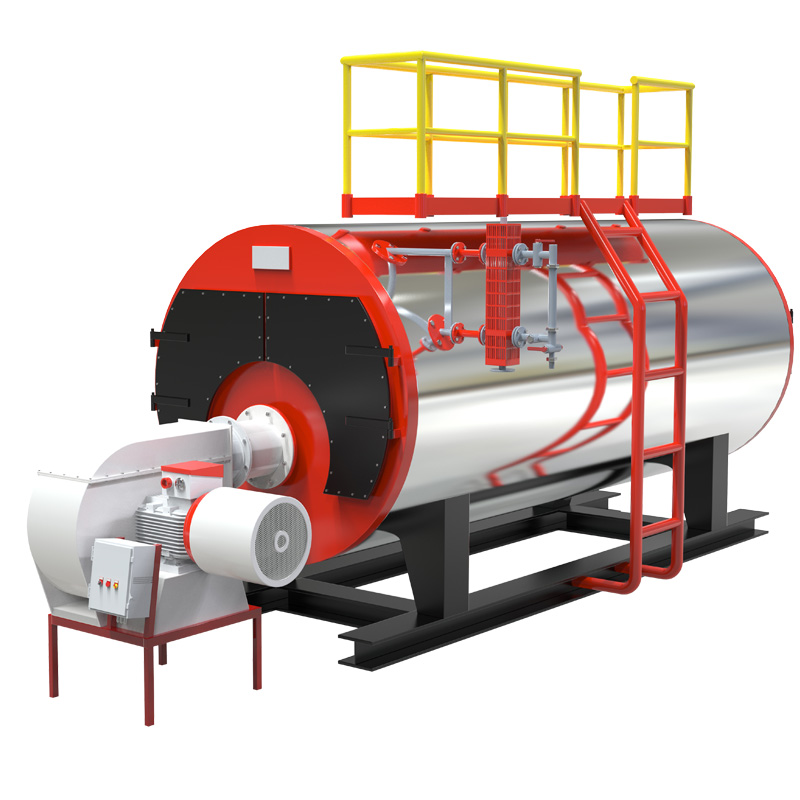
ມ.ຖ. . 04, 2025 08:13 Back to list
biomass fired steam boiler
Producing steam in a boiler is a process that has been refined over the years, leveraging a combination of engineering precision and technological innovation. At its core, a boiler is a sophisticated piece of equipment that transfers heat to water until it transforms into steam. This steam production system is vital for various industrial processes, domestic heating, and energy generation.
As the water absorbs heat, it reaches its boiling point, transforming into steam. This steam is collected at the top of the boiler and redirected for various uses. Depending on the application, the steam produced might be saturated (containing droplets of water) or superheated (cleared of moisture). Superheated steam is often favored for power generation as it provides higher thermal energy and efficiency. Safety is a crucial concern in boiler operation. Boilers are equipped with safety valves designed to release pressure if it exceeds safe limits, ensuring that the equipment operates safely and prolongs its operational lifespan. Routine inspections, adherence to operational protocols, and compliance with industry standards are imperative to maintain safety and efficiency. Practically speaking, the efficient production of steam in boilers is not just about cutting-edge technology; it's also about understanding the intricacies of the system. Experienced operators, guided by training and an understanding of boiler dynamics, can adjust parameters to maximize efficiency, adapt to shifting demands, and ensure longevity. In terms of energy solutions, boilers are adapting to the need for sustainability. Many manufacturers are now designing systems that are compatible with cleaner, renewable fuel sources, thus minimizing the environmental footprint of steam production. The shift towards renewable energy boilers points towards a future where steam production aligns with global sustainability goals, driving innovation in the sector. Overall, steam production in boilers is a testament to the blend of art and science. It requires a comprehensive understanding of mechanical engineering principles, thermodynamics, and the interplay between materials and heat transfer. The role played by experienced engineers and operators cannot be overstated, as their expertise ensures that boilers operate efficiently and safely, providing an essential service across industries worldwide.


As the water absorbs heat, it reaches its boiling point, transforming into steam. This steam is collected at the top of the boiler and redirected for various uses. Depending on the application, the steam produced might be saturated (containing droplets of water) or superheated (cleared of moisture). Superheated steam is often favored for power generation as it provides higher thermal energy and efficiency. Safety is a crucial concern in boiler operation. Boilers are equipped with safety valves designed to release pressure if it exceeds safe limits, ensuring that the equipment operates safely and prolongs its operational lifespan. Routine inspections, adherence to operational protocols, and compliance with industry standards are imperative to maintain safety and efficiency. Practically speaking, the efficient production of steam in boilers is not just about cutting-edge technology; it's also about understanding the intricacies of the system. Experienced operators, guided by training and an understanding of boiler dynamics, can adjust parameters to maximize efficiency, adapt to shifting demands, and ensure longevity. In terms of energy solutions, boilers are adapting to the need for sustainability. Many manufacturers are now designing systems that are compatible with cleaner, renewable fuel sources, thus minimizing the environmental footprint of steam production. The shift towards renewable energy boilers points towards a future where steam production aligns with global sustainability goals, driving innovation in the sector. Overall, steam production in boilers is a testament to the blend of art and science. It requires a comprehensive understanding of mechanical engineering principles, thermodynamics, and the interplay between materials and heat transfer. The role played by experienced engineers and operators cannot be overstated, as their expertise ensures that boilers operate efficiently and safely, providing an essential service across industries worldwide.
Share
Latest News
-
Commercial Oil Fired Steam Boilers with GPT-4 Turbo AI
NewsAug.04,2025
-
Coal Fired Thermal Oil Boiler with GPT-4 Turbo Efficiency
NewsAug.03,2025
-
Commercial Steam Boilers for Sale - AI Optimized Efficiency
NewsAug.02,2025
-
Efficient Biomass Fired Hot Water Boiler | AI Heating Solution
NewsAug.01,2025
-
High-Efficiency Gas Thermal Oil Boilers | HPT Models
NewsJul.31,2025
-
Oil Fired Hot Water Boilers Sale - High Efficiency & Affordable
NewsJul.31,2025
Related PRODUCTS
Copyright © 2025 HEBEI HONGZE BOILER MANUFACTURING CO., LTD. All Rights Reserved. Sitemap | Privacy Policy






















